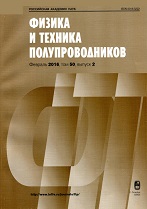|
This article is cited in 16 scientific papers (total in 16 papers)
XV International Conference ''Thermoelectrics and Their Applications-2016 St. Petersburg'', November 15-16, 2016
Development of a mathematical model for optimizing the design of an automotive thermoelectric generator taking into account the influence of its hydraulic resistance on the engine power
R. A. Poshekhonov, G. A. Arutyunyan, S. A. Pankratov, A. S. Osipkov, D. O. Onishchenko, A. I. Leont'ev
Bauman Moscow State Technical University
Abstract:
A complex of models for optimizing the design and operation modes of an automotive thermoelectric generator is developed within the proposed approach taking into account the influence of hydraulic resistance of the generator on the internal combustion engine. Several designs of generators for converting the thermal energy of exhaust gases (EGs) of internal combustion engines into electricity due to the Seebeck effect in semiconductor elements, which have different geometries of the continuous-flow part of the generator with different hydraulic resistances, are considered. Models for calculating the thermoelectric elements, gas heat exchanger, and automotive engine are considered jointly. Simulation is performed using the example of a VAZ-21126 engine, which demonstrated that up to 500 W of electric power can be obtained using semiconductor thermoelectric elements based on germanium and lead tellurides.
Received: 31.01.2017
Accepted: 08.02.2017
Citation:
R. A. Poshekhonov, G. A. Arutyunyan, S. A. Pankratov, A. S. Osipkov, D. O. Onishchenko, A. I. Leont'ev, “Development of a mathematical model for optimizing the design of an automotive thermoelectric generator taking into account the influence of its hydraulic resistance on the engine power”, Fizika i Tekhnika Poluprovodnikov, 51:8 (2017), 1023–1027; Semiconductors, 51:8 (2017), 981–985
Linking options:
https://www.mathnet.ru/eng/phts6058 https://www.mathnet.ru/eng/phts/v51/i8/p1023
|


|





 Contact us:
Contact us: Terms of Use
Terms of Use
 Registration to the website
Registration to the website Logotypes
Logotypes








 Citation in format
Citation in format 
